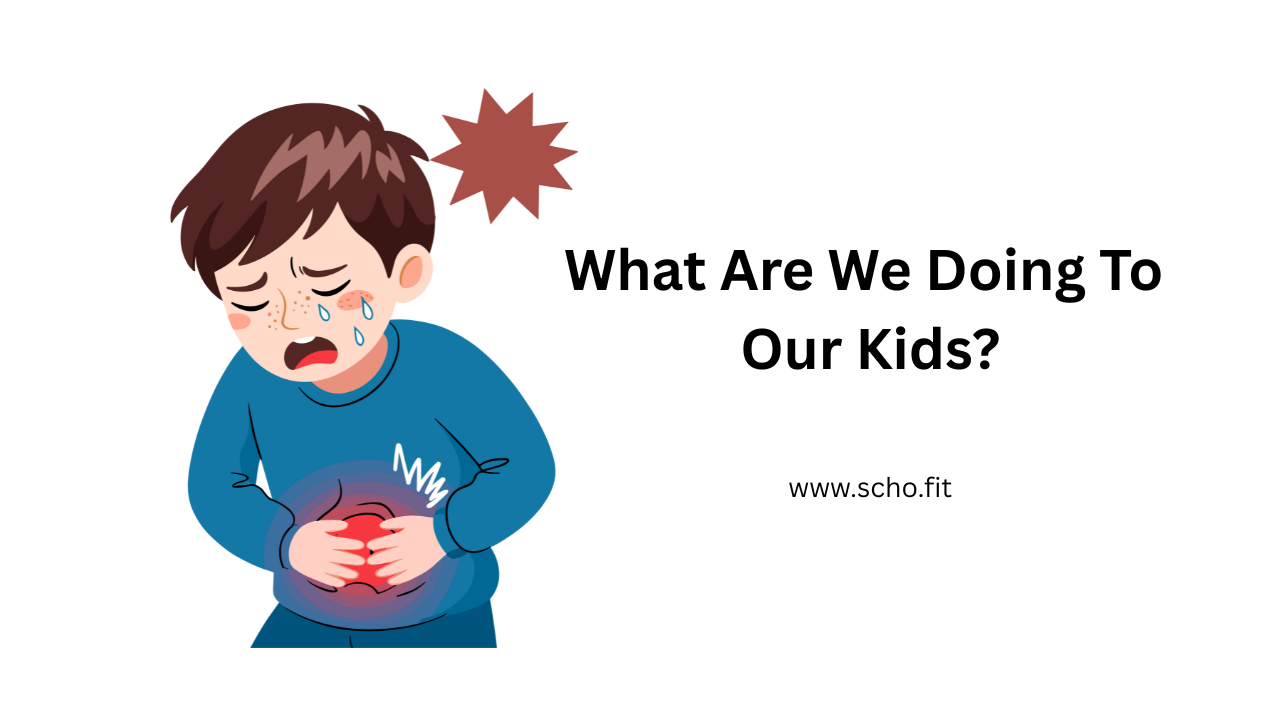
What Are We Doing To Our Children
Nov 08, 2025Our Kids Are Less Healthy Than We Are — And That Should Scare Us
By: Marcy Schoenborn
If you’re a parent or grandparent, this one might be hard to hear:
Today’s children are, on average, less healthy than adults over 50.
That’s not opinion — it’s fact. Research from the National Health and Nutrition Examination Survey found that U.S. children ages 2–18 score only 54 out of 100 on the Healthy Eating Index, while adults over 60 score 61. In simple terms: grandparents are eating better than grandkids.
It doesn’t stop there. Kids are also less aerobically fit than past generations — about 15% less fit than their parents were at the same age, and fitness levels have dropped around 5% every decade since the 1970s.
And here’s the kicker:
The rate of type 2 diabetes in kids has doubled since the early 2000s. Diseases that used to be called “adult-onset” are now showing up in middle school.
Why It Matters
Our bodies can only take so much. When problems like poor diet, inflammation, and inactivity start young, they don’t just “go away” — they snowball.
A child who struggles with energy, weight, or focus at 12 can easily become the adult battling chronic disease at 32.
Older adults today might have their aches and pains, sure, but many of them grew up eating real food, walking more, playing outside, and sleeping better.
Our kids? They’re living in a world of screens, stress, processed snacks, and schedules that leave little time for movement or rest.
We can’t pretend this is “normal growing up.” It’s not.
It’s a warning sign — and we have the chance to change it.
What We Can Do About It
Here’s the truth: healthy habits aren’t genetic, they’re taught — and learned by example.
-
Bring back real food. Kids who eat balanced, whole foods feel better, learn better, and have fewer behavior and mood swings.
-
Move every day. It doesn’t have to be a sport — biking, hiking, dancing, even yard play counts.
-
Guard sleep and mental health. Kids who sleep enough and manage stress handle everything else better.
-
Model what we want them to do. They copy what they see — not what they’re told.
That’s Why I Created Scho Fit: Focus ON Health
Scho Fit isn’t about diets or strict routines.
It’s about teaching kids and families how to build real, lifelong health — one meal, one habit, one small victory at a time.
If you’ve noticed your child has:
-
Low energy or mood swings
-
Sugar cravings or skipping meals
-
Weight gain or early metabolic signs
-
Constant fatigue or poor focus
Then now is the time to act.
Don’t wait until they’re sick to teach them how to be healthy.
*It is harder to retrain them to eat well the older they get.
I’m here to help you rebuild the foundation — so your kids can grow up stronger than we did.
💬 Reach out today to talk with me about your child’s health or to join the Scho Fit Focus ON Health program. Together, we can change their future.
📊 Sources for the stats:
-
U.S. Department of Agriculture, Healthy Eating Index (NHANES 2017–2018)
-
Centers for Disease Control and Prevention (CDC): Youth Risk Behavior Data
-
American Heart Association reports on declining youth fitness (2013)
-
SEARCH for Diabetes in Youth Study (2002–2018)
-
By diet quality, U.S. kids score worse than older adults: on the Healthy Eating Index-2020 (0–100 scale), ages 2–18 average 54, while adults 60+ average 61 (NHANES 2017–2018). Food and Nutrition Service
-
Early metabolic disease is moving younger: the incidence of type 2 diabetes in youth doubled between 2002 and 2018 (from 9 to 18 per 100,000 per year). CDC
-
Fitness is trending the wrong way: kids today are ~15% less aerobically fit than their parents were at the same age, with youth endurance declining ~5% per decade since the 1970s. ScienceDaily+1
-
Youth mental-health burden has intensified: the share of adolescent ER visits due to mental-health concerns rose from 9.3% in 2019 to 11.6% in 2021. PMC
Don't miss a beat!
New moves, motivation, and classes delivered to your inbox.
We hate SPAM. We will never sell your information, for any reason.
